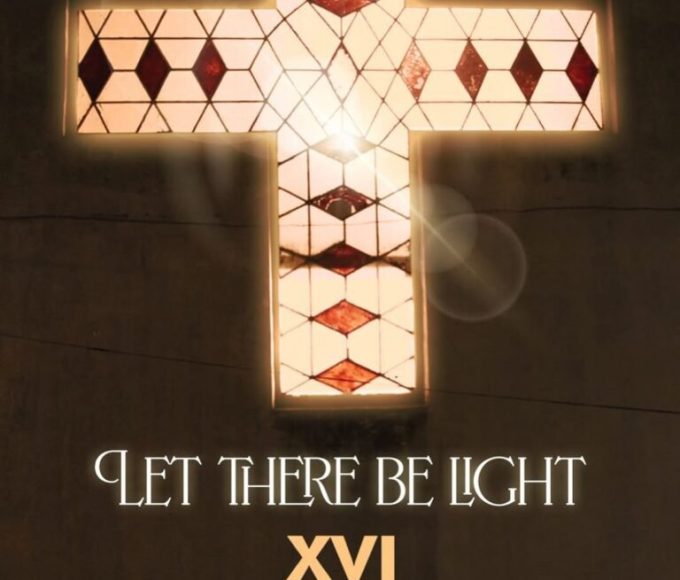
Funke Akindele and the December Box Office Tradition

Every December in Nigeria, alongside Christmas carols, family gatherings, and Jollof rice, another tradition has quietly but firmly taken root – a Funke Akindele blockbuster at the cinemas. What started as a typical release schedule has now evolved into a cultural phenomenon of its own. An unspoken agreement between the star actress, filmmaker, and her audience that the holiday season will be incomplete without her film lighting up the big screen.
This December, Akindele is set to return with “Behind The Scenes,” a film that is already stirring conversation months ahead of its release. But its anticipation is not just about the story. It’s about the streak. For four years in a row, Funke Akindele has owned December in Nollywood, and the numbers and audiences have consistently rallied behind her.
The story of Akindele’s December dominance began in 2020 with the release of Omo Ghetto: The Saga. Released on December 25, 2020, amid a pandemic that crippled cinema attendance worldwide, the film defied the odds. By January 2021, it had become Nigeria’s highest-grossing film of all time, surpassing The Wedding Party. What stood out was not just its raw humour and vibrant energy, but how Akindele understood her audience – youths, families, and nostalgic lovers of her Jenifa universe and gave them a film that was both a reunion and a reinvention.
The following year, 2022, she repeated the feat with Battle on Buka Street, another comedy-drama that carried the pulse of everyday Nigerians. By the end of its run, it had grossed over ₦668 million, officially dethroning Omo Ghetto as Nigeria’s highest-grossing film. In doing so, Akindele not only bested herself but also cemented her hold on the December box office.
December 2023 brought A Tribe Called Judah, a family-themed drama that explored love, sacrifice, and survival in a way that resonated deeply with audiences. The film crossed the ₦1 billion mark in box office sales, a historic milestone that further solidified her status as the queen of Nigerian cinema. It was no longer just about numbers. Funke Akindele was building a December ritual.
Then came December 2024, when she unveiled Everybody Loves Jenifa. The film was both a nostalgic callback and a modern-day celebration of the character that launched her into the pop culture stratosphere. For fans, it felt like a homecoming. For Akindele, it was a reminder that December wasn’t just her month; it was a reminder that December wasn’t just her month. It was her stage.
For many Nigerians, especially moviegoers, December has quietly evolved into “Funke Akindele season.” Her films are no longer treated as just new releases; they are woven into the fabric of the festive calendar. Families make movie dates around them, social media brims with reviews and memes, and cinema owners breathe a sigh of relief knowing a Funke Akindele title will draw in crowds.
It’s a cultural phenomenon rooted in consistency. While other filmmakers wrestle for favourable release windows, Akindele has carved out December and turned it into her playground. What Marvel is to summer in Hollywood, Akindele is to Christmas in Nollywood.
The choice of December is not accidental. The festive season is when Nigerians are most likely to spend on leisure – salaries and bonuses are paid, families reunite, IJGBs (I Just Got Back) align, and cinemas become communal spaces of escape and bonding. Releasing films at this time isn’t new, but Akindele has mastered how to position hers as the event of the season.
Her movies often blend humour, family drama, and social commentary. Genres that cut across demographics. Her films create an inclusive experience that December crowds can rally around. One of Funke Akindele’s biggest weapons has been her marketing strategy. Loud, relentless, and personal. She doesn’t just release movies, she builds a movement around them. From viral skits featuring her characters to mobilising Nollywood stars and influencers for coordinated hype, to dominating social media timelines with countdowns, hashtags, and teaser clips, Akindele ensures her projects become unavoidable cultural conversations. And perhaps most importantly, she leverages her own celebrity power.
Now, as December 2025 approaches, Behind The Scenes is more than just her next release; it’s a continuation of a tradition audiences have come to expect. Industry watchers are already speculating whether it will set another box office record, but beyond the numbers lies a larger truth: Akindele has reshaped how audiences think about Nigerian cinema during the holidays.
Her dominance also raises questions: Are other filmmakers shying away from December because they know it’s “Funke’s month”?
Read More:
- Rose Gidado, Nigeria’s GMO Regulator and TELA Maize Advocate, Defends Safety – ‘We Won’t Poison Our Own People’
- Nigeria Immigration Triples Passport Fees To N100,000, N200,000 In Less Than 2 Years
About The Author
Related Articles
Sinners Breaks Records as Oscar Nominations Set Stage for Fierce 2026 Awards Race
The Academy of Motion Picture Arts and Sciences has announced the full...
ByWest Africa WeeklyJanuary 23, 2026Funke Akindele Extends Box Office Streak as New Film Hits ₦1bn
Nollywood actress and filmmaker Funke Akindele has set a new box office...
ByWest Africa WeeklyDecember 31, 2025Wizkid, Seyi Vibez, and Asake Dominate Spotify’s 2025 Wrapped in Nigeria
Spotify has released its 2025 Wrapped data, and the results show another...
ByWest Africa WeeklyDecember 4, 2025Lagos Welcomes XVI Edition of S16 Film Festival Featuring Shorts, Features, and Panels
The 2025 edition of the S16 Film Festival officially opened in Lagos...
ByWest Africa WeeklyDecember 3, 2025












Leave a comment